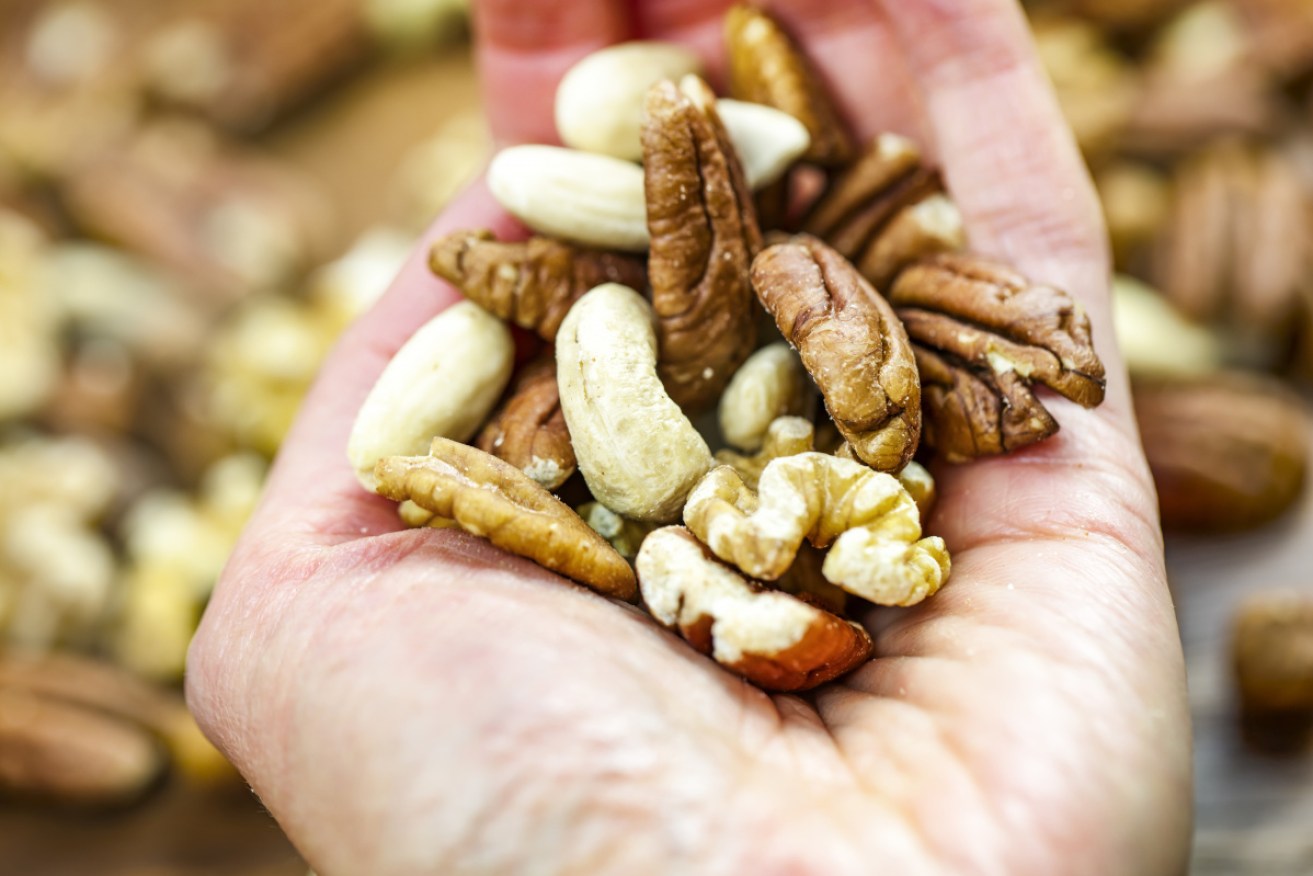Preventing non-alcoholic fatty liver disease: A handful of nuts and seeds


A handful of nuts every day could prevent a gateway condition leading to liver cancer. Photo: Getty
Eating a moderate amount of nuts and seeds each day appears to prevent non-alcoholic fatty liver disease, new research from Deakin University has found.
Non-alcoholic fatty liver disease (NAFLD) occurs when fat builds up in the liver and affects between 20 and 30 per cent of the global population.
There are no symptoms, and when left unchecked can progress to an advanced form known as non-alcoholic steatohepatitis (NASH) – where the buildup causes inflammation and can lead to scarring of the liver.
Lead researcher, Dr Elena George, from Deakin University’s Institute for Physical Activity and Nutrition, said her study found that eating as little as 15-30 grams of nuts and seeds a day could reduce the likelihood of non-alcoholic fatty liver.

Non-alcoholic liver disease can progress to liver failure or cancer. Photo: Getty
Men and women appear to respond differently to nuts in their diet.
Dr George said that women appear to benefit “from any amount of nut intake”, while for men the benefit only occurred when they ate between 15 grams and 30 grams of nuts and seeds most days.
The study’s findings
- For men, there was a 9 per cent lower prevalence of NAFLD in those consuming between 15 grams and 30 grams of nuts and seeds compared to men who consumed no nuts and seeds.
- There were no significant differences for males consuming less than 15 grams or more than 30 grams of nuts and seeds.
- For women there was a 7 per cent lower prevalence of NAFLD for those consuming less than 15 grams nuts and seeds per day.
- For women consuming between 15 grams and 30 grams per day there was a 15 per cent lower prevalence.
- Interestingly, there appears to be a ceiling to the benefits. For women consuming more than 30 grams a day there was a 14 per cent lower prevalence, when compared to females who didn’t eat nuts and seeds.
Dr George said this apparent decline in benefit could potentially be explained by a greater consumption of nuts reflecting a greater consumption of all foods.
All nuts appear to be beneficial
The researchers analysed the nut intake and NAFLD prevalence among more than 25,000 people aged 18 and over from the National Health and Nutrition Examination Survey (NHANES).
The survey is a program of studies designed to assess the health and nutritional status of adults and children in the United States. The survey combines interviews and physical examinations.
The analysis excluded chestnuts because they are low in total fat, and coconuts because they are high in saturated fat.
Otherwise, the study included almonds, almond butter, Brazil nuts, cashews, cashew butter, hazelnuts, macadamias, pecans, pine nuts, pistachios, walnuts, peanuts and peanut butter.
Seeds included in the study: pumpkin seeds, flaxseeds, sesame seeds, sesame butter, sunflower seeds, psyllium seeds and chia seeds.
Dr George said these have a similar nutrition composition, being high in unsaturated fats and fibre and antioxidants.
Why these findings are important
Non-alcoholic liver disease is one of those conditions that can easily go undetected. There are no symptoms, even when the condition initially progresses to scarring the liver.
A liver function test will show you have a fatty liver, but it’s up to your GP to recognise the need for a test – or to schedule one as part of an annual check-up.
Once detected, it’s up to the patient to institute lifestyle changes (diet and exercise) because there is no drug treatment.
Dr George said that introducing nuts and seeds into your diet “may be a simple way to help prevent chronic liver disease, as well as provide other benefits that have already been established in science”.
She said that nuts and seeds are rich food sources of unsaturated fatty acids, dietary fibre, minerals and antioxidant compounds which are associated with a decrease in inflammatory markers and increased antioxidant capacity.
This was an observational study. In January, Dr George and her colleagues will recruit participants for a clinical study that will examine the impact of the Mediterranean diet on liver health, including an analysis of nut consumption.








